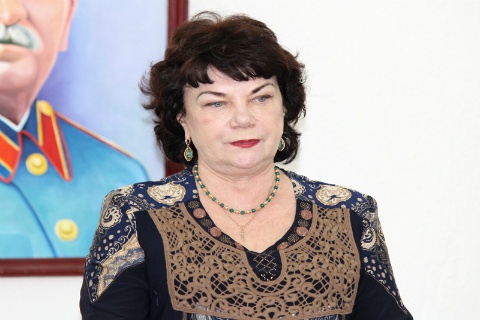The MP, who is known for her criticism of the #MeToo movement, has now advised Russian women to ‘’give birth to our own children’’.
A lawmaker who heads the Russian parliament’s family committee has advised local women to refrain from sleeping with visiting World Cup fans, lest they want to become single mothers of mixed-race children.
Tamara Pletnyova, a 70-year-old lawmaker who chairs the lower house’s family, women and children body, fired the warning to her fellow Russian women while speaking to the Govorit Moskva radio.
“I hope they get something clear in their heads regarding foreigners. Will there still be girls who will date foreigners and then have children from them? Perhaps there will be some, but I am hoping not.’
Pletnyova warned local women that they should learn lessons from the USSR era when some of their predecessors became pregnant after having relationships with foreigners at the 1980’ Moscow Olympics.
The interviewer then asked Pletnyova whether the world cup could see a spike in Russia’s flailing birth rate – a major goal for President Putin – to which she replied: ‘We should be giving birth to our own children.’
‘It’s the children who suffer… and have suffered since the Soviet era. It’s lucky if they’re the same race (as the mother) but if they’re of another race, it’s worse,’ the politician said.
She further said that even if the men decide to marry the mother of their progeny, they take both of them away from Russia, with the result that the women don’t know how to get back.
‘Then they come to see me at parliament and cry that their children were taken away, snatched from them.’ As a result, she further claimed, both the members of the couple should ‘’be citizens of Russia’’.
It isn’t the first time that the Russian lawmaker has been making the news with her remarks. Previously, she irked the liberal world with her criticism of the #MeToo movement.
‘We’re not in America or Europe. Why should we copy everything?” she had then told Gazeta.ru site, before adding: “If a woman doesn’t want it, no one is going to harass her,’
She has been serving as a lawmaker in the Russian parliament ever since 1993 when the first post-Soviet parliament was formed.
